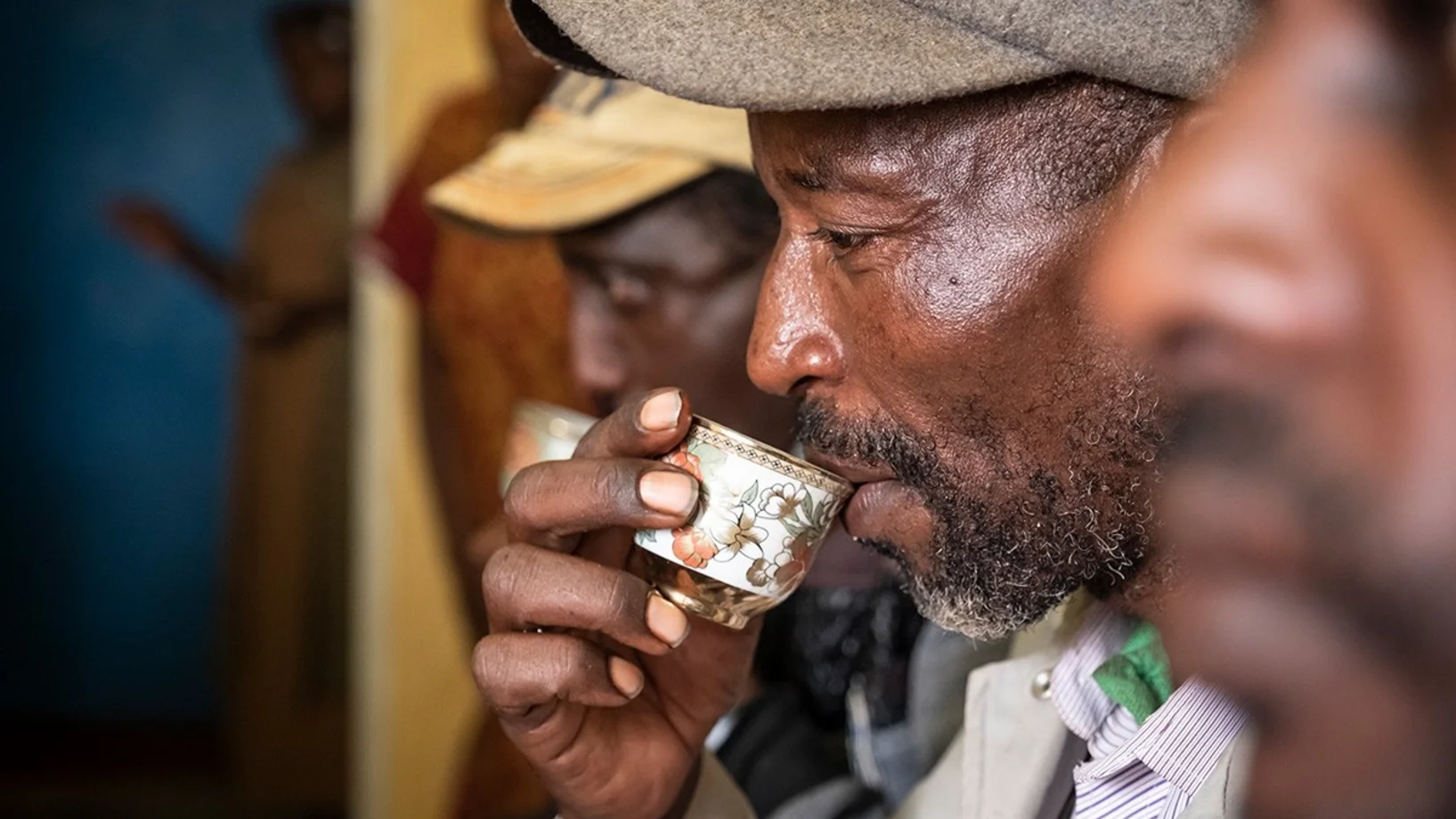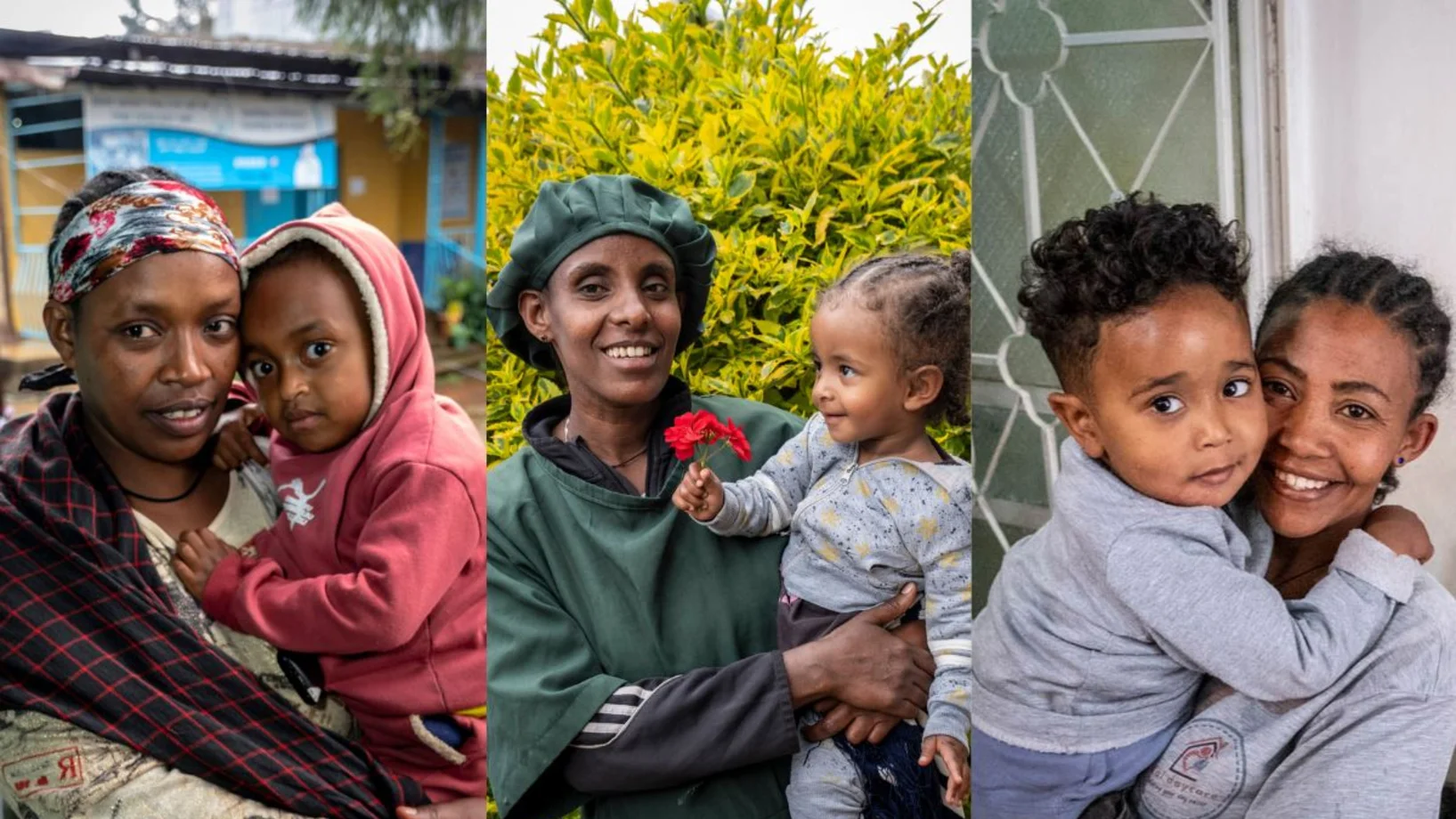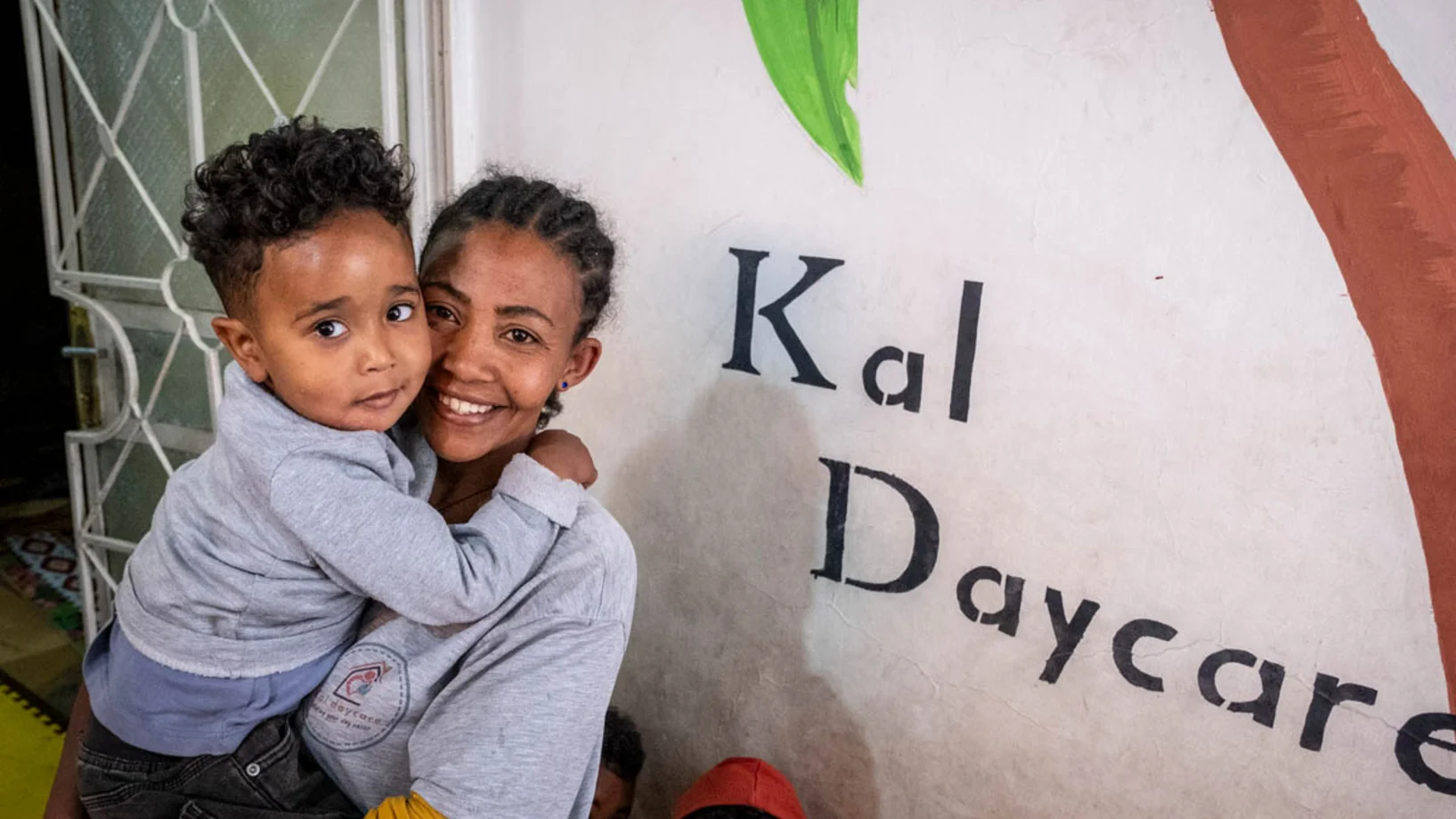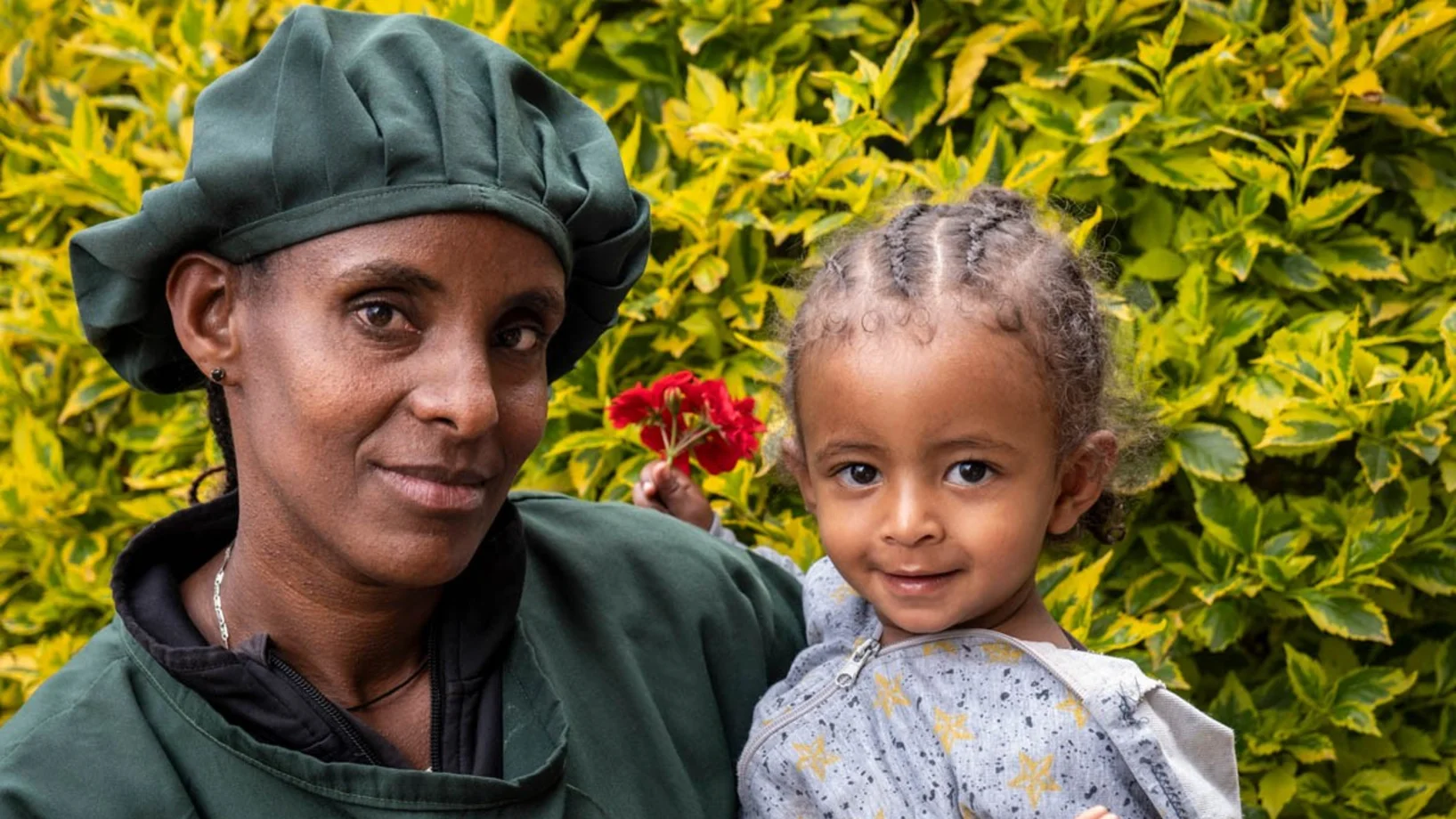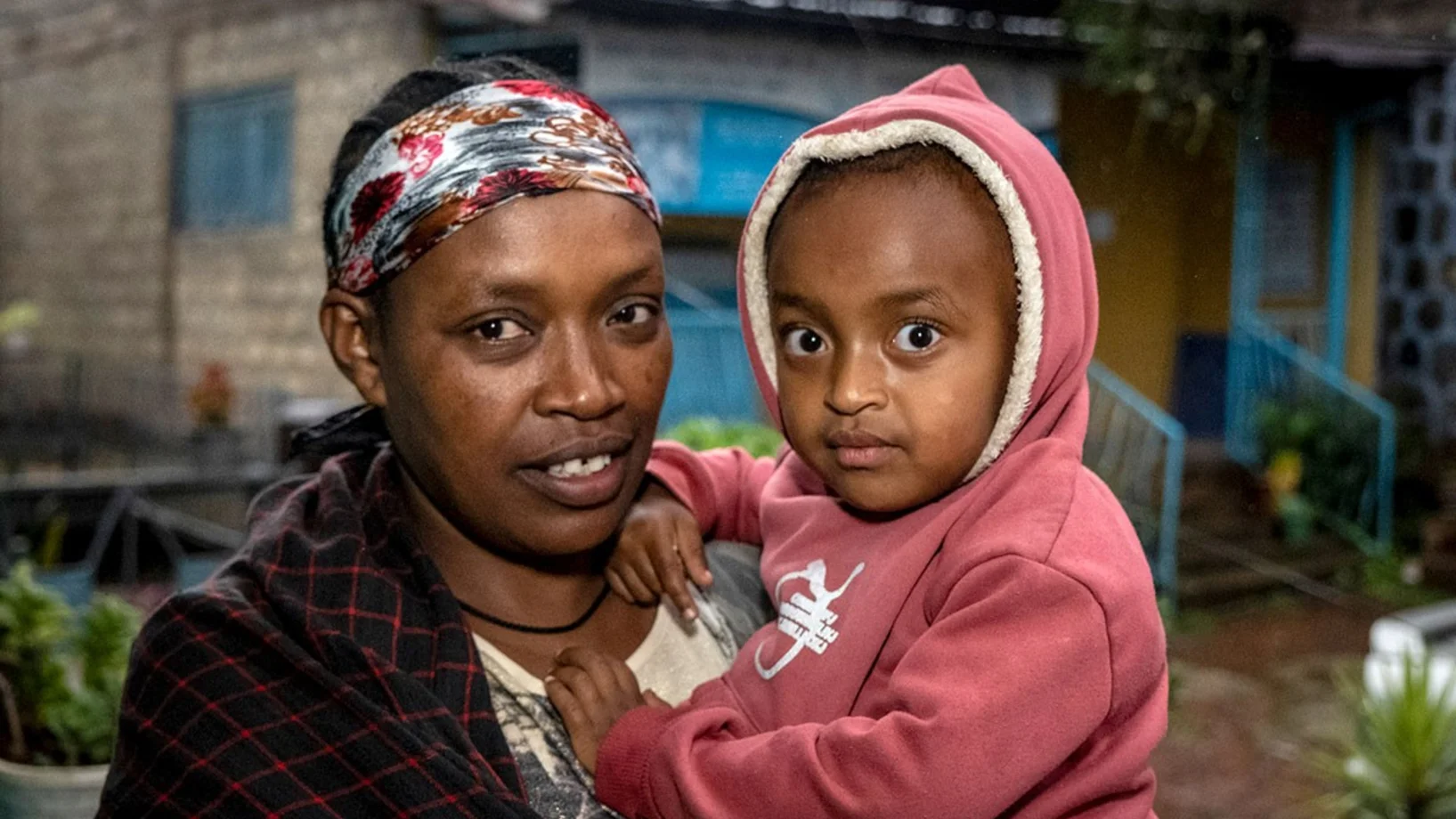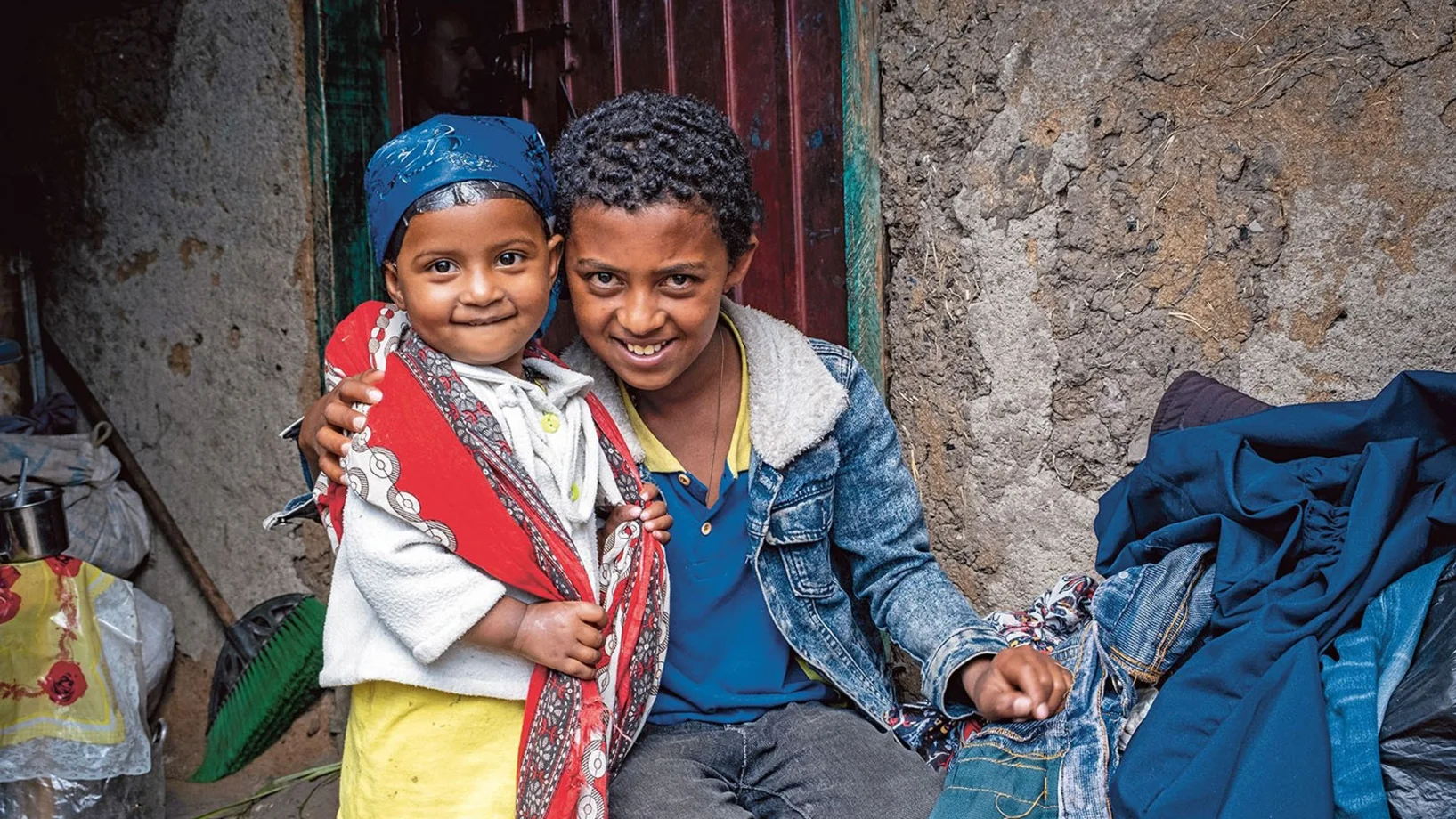Health is the most important asset: finally healthy again!
Health expenditure in Switzerland amounts to 9,666 US dollars per person per year. In Ethiopia it is 27 US dollars. In Switzerland there is one doctor for every 232 inhabitants, and in Ethiopia there is one doctor for every 12,500 inhabitants. These World Bank figures mean: A child of poor parents who needs medical treatment in Ethiopia has little chance of recovery. With limited resources, great suffering can be ended, which is often caused by a lack of money - this is the experience of the Swiss People for People Foundation. One example is the story of little Meaba's suffering: she suffered from a tumor on her jaw. With the help of our donors, the girl was completely healed.
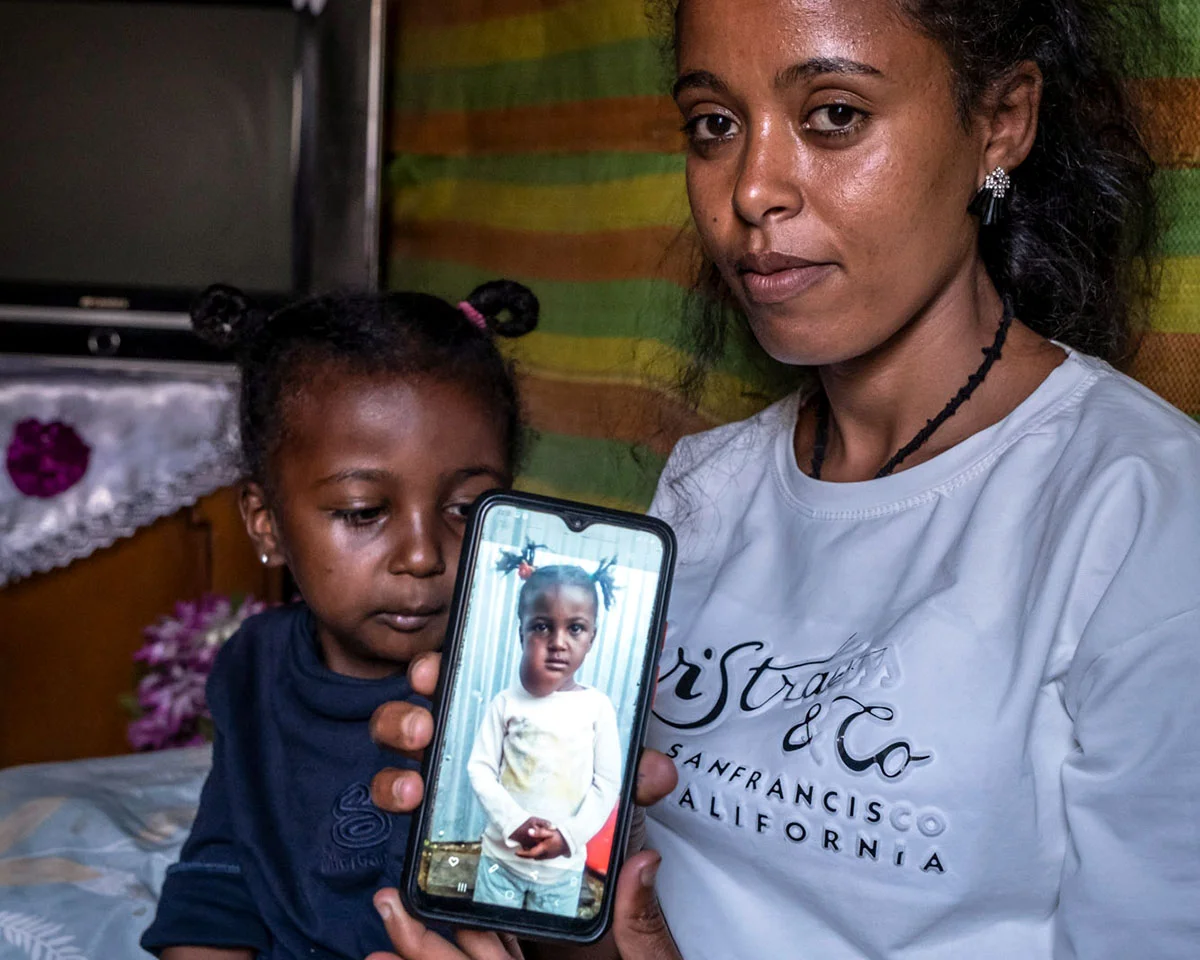
Social worker Mulumebet: “This is what Meaba looked like before we helped her.”
INITIALLY THERE WAS ONLY a small bump on her right cheek: her mother Almaz Gezahegn, 31, went to the health center with little Meaba. The staff suspected tonsillitis - and sent mother and child home with a syrup.
But the bump didn't go away. After two weeks, the mother went back to the health center with Meaba. The staff told her to go to a private clinic. “But we can’t afford that,” says Almaz. She washes the clothes of long-distance drivers. Her husband Bekele, 35, works as a day laborer in construction. Together they earn less than two francs a day.
Anyone who is sick stays so
Poverty in Africa also means that anyone who gets sick often stays that way. According to the law, the poorest families in Ethiopia are treated free of charge in state health centers. But medicines are often missing there, even for common diseases. Patients then have to buy these themselves in pharmacies. But they have to spend practically all of their income on food. This means that medication and even more treatment in private clinics that charge a fee are out of reach for them.
The bump continued to grow. After all, it was bigger than a pear. Almaz put a scarf on the girl to cover the swelling. Nevertheless, Meaba was excluded: the other children in the neighborhood no longer wanted to play with her. “I was desperate,” says the mother. "I couldn't do anything."
Poor people often fail to demand their rights. Most of them cannot read or write and feel powerless - and are. Many officials treat the uneducated as second-class citizens and do not advocate for them to get on the waiting list for surgery.
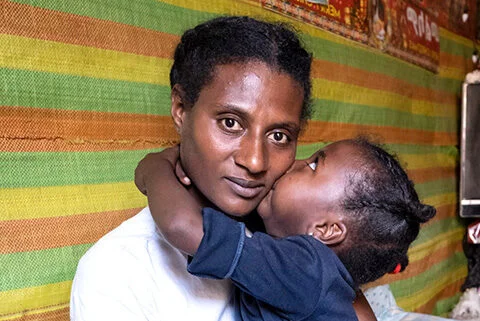
Meaba and her mother are going through a difficult time
Blessing in disguise
Meaba was lucky in misfortune: In Debre Berhan, a city with 140,000 inhabitants, People for People identified 1,200 children from the city's poorest families. They should be given comprehensive perspectives on life. The children are supported with food and school supplies. Because every case of illness endangers the development of families, the project has a health component. All children receive a routine annual examination. In the event of an acute illness, the social workers ensure that they are examined in the state health centers and receive the appropriate medication. When social worker Mulumebet Gezahegn found out about Meaba's illness, she helped the mother get a referral to Addis Ababa: Anyone who becomes seriously ill in Ethiopia has to travel to the capital. The few specialist clinics are located there.
Meaba was in Yekatit Hospital with her mother for two weeks. The doctors diagnosed an “odontogenic fibroma,” a rare benign tumor, and operated on the girl. Now, three months later, only a scar on her lower jaw remains a reminder of Meaba's suffering. The costs for the trip, the operation and the medication were borne by People for People . They amounted to the equivalent of 253 francs. A small sum in view of the great impact: Meaba was relieved from her complaints, her parents from excessive worry.
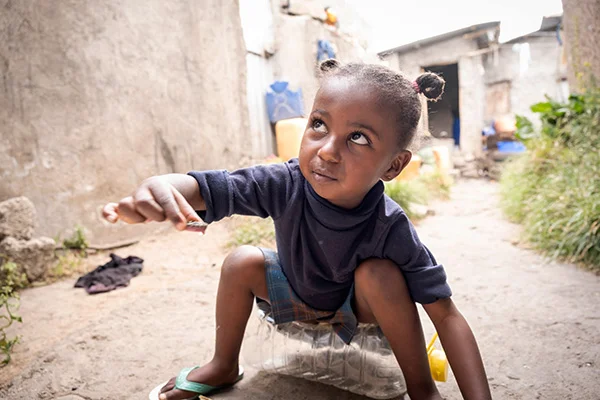
Meaba can play carefree again
“We could never have raised this money,” says Almaz. “But the visits from social worker Mulumebet were just as important. Your comfort, your advice. That's the only reason this terrible nightmare is over."
Meaba sits on her lap. The four-year-old sees how serious her mother's face becomes as she remembers the difficult time. Meaba presses a kiss to her cheek. Then she goes outside to play.
End diseases of poverty
Around 150 children are treated every year, including for the eye disease trachoma. Scabies, typhus, typhus and diarrhea are other major diseases. “Overall, the social workers concentrate on prevention and health promotion during their home visits in order to prevent poverty-related diseases. Above all, they educate people about the importance of hygiene,” says Kelsang Kone, managing director of People for People . “Inadequate latrines, lack of waste disposal and poor personal hygiene are some of the main reasons why children fall ill.” The families, whose huts are rarely connected to the water supply, are given plastic bins with a tap and soap - so people have the opportunity to practice hand hygiene. This preventive health care costs 30 francs per child per year.
WHAT DOES HEALTH COST?
In Switzerland there is one doctor for every 232 inhabitants , and in Ethiopia there is one doctor for every 12,500 inhabitants.
According to the World Bank, health spending in Switzerland is $9,666 per person per year. In Ethiopia it is US$27 . This means: A child who needs medical treatment in Ethiopia has little chance of recovery without outside help.
Without People for People, many children's illnesses would not be treated. Above all, we ensure public health in poor areas with preventative measures.
We distribute soaps and water containers for handwashing. Parents receive training in hygiene and precautions. Malnourished children receive food aid.
With 60 francs a year we can ensure the health development of two children.
